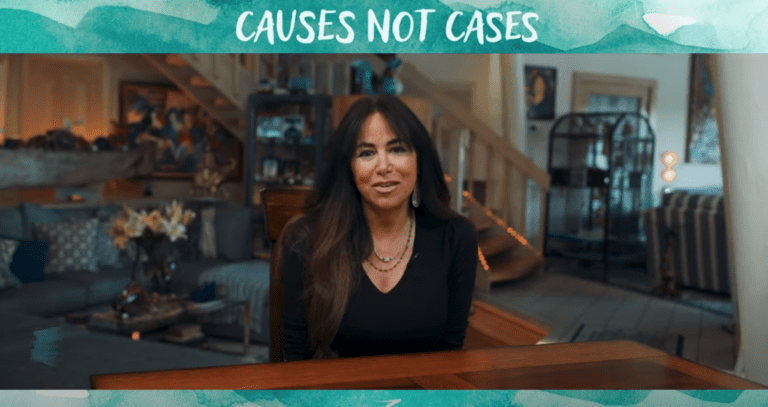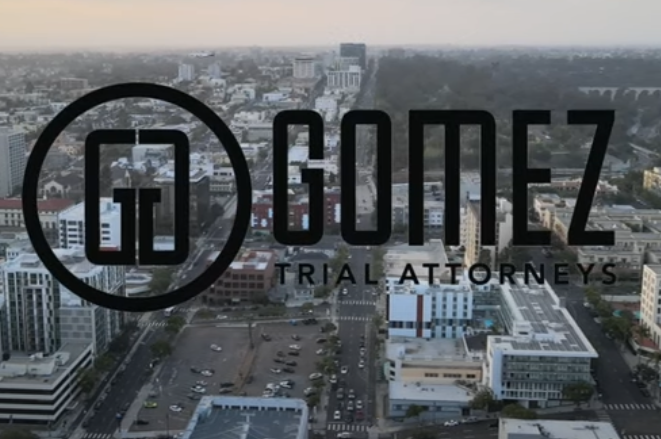
After an accident, most people want to recover money for their damages. A part of the process involves insurance companies. Usually, you would notify an insurer of the incident to open a claim.
Typically, the person you speak to is an insurance adjuster. An insurance adjuster’s job is to resolve claims quickly. However, many of them are not on your side in that they don’t have your best interests in mind. Like other claimants, you might wonder if the adjuster would lie.
[lwptoc]
Types of Insurance Adjusters
An estimated 287,160 people work as insurance adjusters in the United States. You likely might speak to one if you have to deal with a car insurer after an accident. You might contact one for a medical claim as well. While all adjusters appraise and investigate claims, three different types exist.
Staff Adjuster
One kind you might speak to is a staff adjuster. Also known as company adjusters, they work for the insurance company directly and full-time. They manage claim services. The goal of a staff adjuster is to save the insurer money.
Additionally, staff adjusters limit how much they can award the insured person. If they have more experience, the awarded amount increases. The adjusters try to settle claims as soon as possible as well. They receive evaluations based on how many they resolve in a given period.
Independent Adjuster
Another type is an independent adjuster. They operate as an independent contractor for an insurance provider. The adjuster investigates a claim and attempts to resolve it. Of course, similar to the staff adjuster, and the person still tries to save the company money
An independent adjuster can offer services to multiple insurers. A company might prefer one for efficiency for high-valued or catastrophic claims. Many states require independent adjusters to obtain a license.
Public Adjuster
Public adjusters are freelancers you hire instead. Thus, they work for you and try to get a fair settlement quickly. You can find one at a public adjusting firm as well. Since your insurer does not pay the adjuster, you can trust the person to consider your best interests.
Some tasks of a public adjuster include filing online claim forms, assessing the damage, and attending meetings. Most states require them to have a license to operate. Public adjusters typically take a percentage of your settlement as payment.
Would an Insurance Adjuster Lie?
No one likes to deal with an insurance adjuster. They aim to maximize profits for the insurance company, which is generally accomplished by minimizing payments to policyholders. You might feel some pressure when you deal with an insurance company. One concern many people have is if the adjuster they speak with would lie to them.
If you are handling something like a car accident claim, you should assume that the adjuster is not being completely transparent with you. Some insurance companies allow their employees to avoid the truth. One of the lies you might hear is the at-fault party is not liable for the accident. However, the opposite is the case.
The insurance adjuster might tell you the company cannot get a hold of the other driver for weeks. The person could lie and say they still need to investigate even though a couple of months have passed. The adjuster even might tell you they will take full responsibility only to claim you share part of the blame.
Some insurance adjusters may lie to misrepresent the law to reduce how much the company has to pay injured victims. They rely on people being unfamiliar with the rules and the claims process. An adjuster could say you can’t recover specific damages like pain and suffering for some reason or another.
Another possible deception has to do with the available amount of coverage. An insurer might tell you it can only provide a specific amount of money for your claim. The value the insurance provider offers you might not accurately reflect how much is available.
Since you are likely to be vulnerable after an accident, the adjuster is more willing to use these tactics against you. One way to avoid deception is to get a lawyer. Attorneys usually deal with insurance companies for you and can protect you from adjusters.
Common Strategies Among Insurance Companies
Delays
Besides lies, the insurance company generally uses other tactics to minimize the value of your claim. Many insurers delay claims in the hopes the injured person becomes frustrated enough to accept a low settlement. The company might avoid you for some time.
Life can keep you busy, and you could struggle to keep up with your claim. A delay tactic does not make the process easier. Many people have had to wait weeks for a return call from an adjuster. In some cases, the adjuster assigns you to someone else.
The new person needs time to review the facts of the accident and your damages. A few insurance companies hope to stall long enough for you to miss deadlines.
Recorded Statements
An insurance agent may reach out to you and request a recorded statement. A recorded statement means you would give your side of the story. The request may appear reasonable at first, and you might see it as an opportunity to convince the insurer you were not at fault.
However, the insurance company likely will use the information against you. Adjusters tend to use recorded statements as tools to devalue people’s claims. Most attorneys recommend injured victims not to speak to the other party’s insurer until they get legal help.
Medical Authorization Forms
Several insurance providers ask the victim to sign a medical authorization form. The agent might claim to need your medical bills related to the accident. A misconception is the signed form helps the company compensate the injured party.
However, the adjuster may use the document to gain access to any medical record from any healthcare provider. They might look at records from before the accident to see if they can claim your current injuries are due to a pre-existing condition. As a result, the chances of compensation are lower.
Lawyers know what strategies insurance companies may use. They can protect injured people from compromising the value of their claim.
Insurance Adjusters Monitor Social Media Activity
Roughly 82 percent of people in the United States have a social media profile. Many people expect some level of privacy online, even if a post goes viral. You likely know colleges and employers tend to view an individual’s social media page. However, some policyholders might not know their providers look at their posts on social media as well.
An insurance adjuster might see what you post on Instagram, Twitter, Facebook, or YouTube if they can find your accounts. If they can prove it is your account, the court may allow them to use relevant postings. An insurance company could use what you posted out of context to justify a reduced payment.
For example, a person might photograph themselves before the accident but post it afterward. The insurer could use the upload date and picture to prove the injuries are not as severe.
If you post jokes about the incident, an adjuster could use them out of context. Some people write statements on social media the insurer can use to shift blame or lower a case’s value.
Interestingly, insurance adjusters might view online platforms to affect people’s rates. They could observe screenshots of text conversations, relationships, and geotagging. If the company suspects an increased risk of negligence, it could raise premiums.
More and more adjusters investigate the online world. In most places, laws do not restrict insurance companies from using social media against victims. You should ask an attorney about what you should and should not post.
What if the At-fault Party Has No Insurance?
In a few situations, the at-fault party does not have insurance. While you may not have to deal with the other party’s insurer, the process for compensation could become complicated. You would still need to deal with an agent, but you have to turn to your insurer for coverage.
If you were in a car accident, your policy might have an add-on called uninsured motorist coverage. Some states require insurance companies to provide the protection. The policy cannot exceed the amount you get for standard liability coverage.
Most states make car insurance mandatory for registered vehicles. The chances of an uninsured at-fault driver are low. In other personal injury cases, you could struggle to obtain compensation. While you might be able to sue, you likely would not receive much in a settlement.
The defendant might be unable to pay the awarded amount due to limited financial resources. You should consult a lawyer to learn your available options if the liable party has little to no insurance.
How Do Insurance Adjusters Calculate Offers?
In any personal injury case, a person would notify the insurance company of the incident. Since insurance adjusters evaluate claims, they consider several factors when they appraise a claim’s worth. Before they decide on a monetary offer, they look at the expenses you incurred.
The expenses usually include various medical bills. The insurance company reviews the cost of your treatment, medication, medical devices, and ongoing rehabilitation. The money you spend on the repair or replacement of broken property counts toward your bills.
Another factor has to do with lost job opportunities. An accident could mean you missed a day or more of work to heal from your injuries. As a result, you have lost wages that you would be entitled to recover. Some people lose the ability to earn income in the future due to catastrophic damages.
Other lost work opportunities include missed vacation days and other perks. An insurance adjuster considers other damages like pain and suffering as well. Since pain and suffering are subjective, the insurer might calculate a lower amount.
A person’s injuries could cause more negative effects. The adjuster likely takes the effects into account to decide on an initial offer.
Limits
Many people can receive a lot of money from a case. However, an insurance company might have limits when paying a claim. Most providers have policy limits and rarely ever exceed them. For instance, the at-fault driver could have coverage worth $75,000. Therefore, their insurer will not offer more than $75,000.
However, some people’s damages exceed the available policy limits. One option would be to collect the difference directly from the liable party. You can ask your lawyer about what you can do if the policy limit is lower than the cost of the accident.
Another type of limit on compensation is a damage cap. Damage caps usually apply when a person sues, but the insurance company cannot pay more for specific damages than the law allows. For example, a federal statute imposes a $250,000 limit on non-economic damages for medical malpractice claims
States have different (or no) damage caps on personal injury damages. A few places put a maximum dollar amount for punitive damages. If you are unsure if a damage cap would apply to your case, you can ask your attorney.
How to Know if You Have a Claim
Most personal injury cases have a set of criteria to let people know if they have a valid claim. The first requirement is that the at-fault party had a duty to do or avoid action. Moreover, the standard or care an individual must adhere to depends on the facts of the case. For instance, the standard of care for a doctor is much different than the standard of care for a child.
The responsible person needs to have breached their duty of care. A driver may have run a red light, or a manufacturer used shortcuts during production. The next requirement for a valid case is the breach directly led to your injuries. For instance, a doctor’s incorrect treatment caused your condition to become worse.
The injuries you sustained resulted in damages. If all the elements are present, you can file a claim for reimbursement.
You might not believe you can recover damages if you did not feel hurt immediately after the accident. A few injuries might not present symptoms quickly, and adrenaline can prevent you from feeling pain. Visit a healthcare facility for a full evaluation of your condition.







